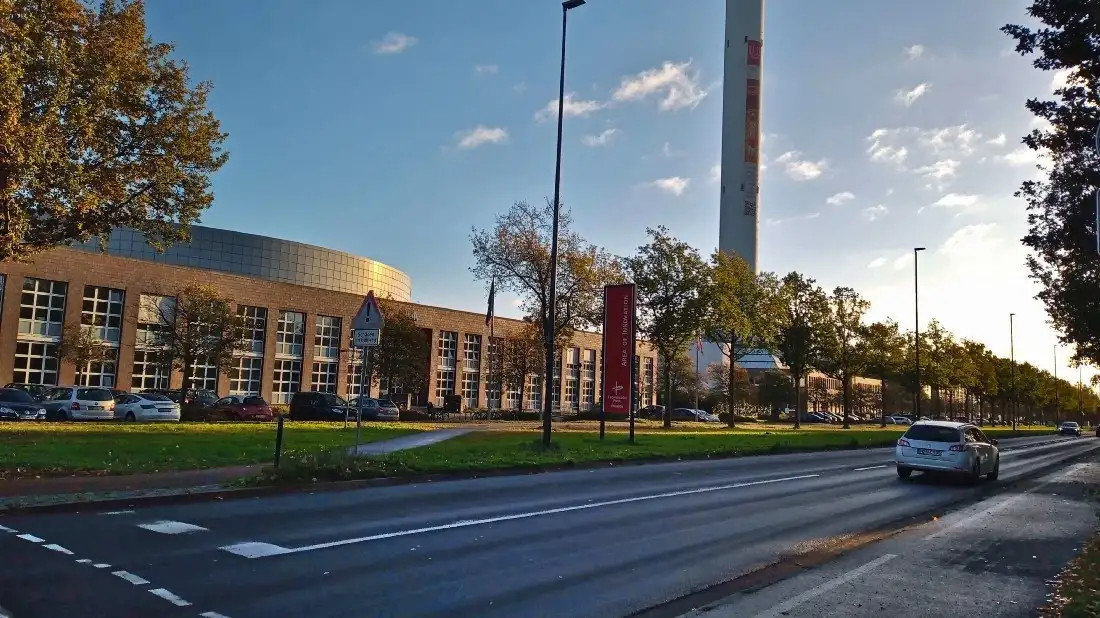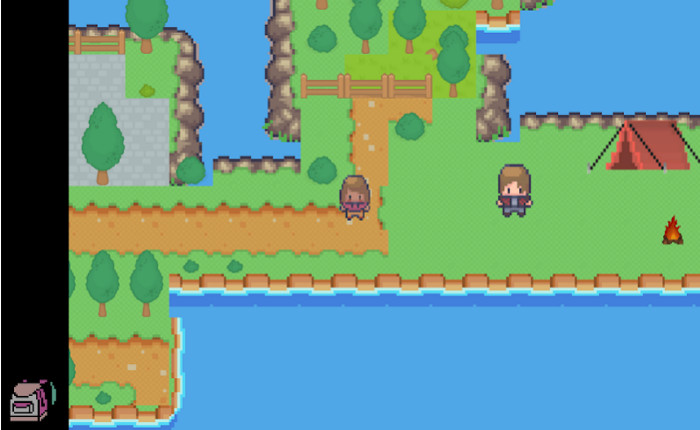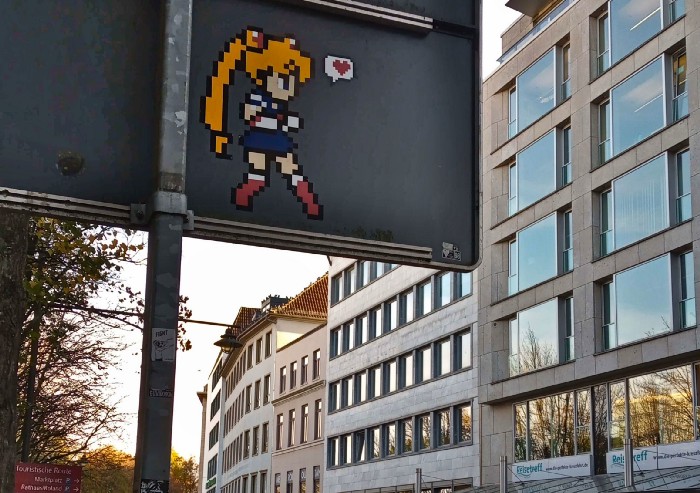Bridges to Bremen: reporting from IFIP-ICEC 2022
Published on 2022-11-06 by Gabriel C. Ullmann
Bremer Institut für Produktion und Logistik (BIBA), the venue for IFIP-ICEC in Bremen. 02 Nov 2022. Personal archives.
A few months ago I only knew Bremen for two reasons: the Rolling Stones album Bridges to Bremen and the the Bremen Town Musicians tale. But this month, I had the opportunity to stop by the famous German city to present my work on game engine anatomy at the IFIP International Conference on Entertainment Computing (IFIP-ICEC). In the course of 3 days of event I had the opportunity to talk to researchers from all over the world and do something I love: mixing Software Engineering with art, social studies and even psychology.
In this post, I want to share with you some interesting debates and ideas that I saw at IFIP-ICEC. But I couldn't start without first saying thank you the 3 people who have closely followed my research journey in recent years: my supervisor, Dr.Yann-Gaël Guéhéneuc, who made possible my trip and stay in Bremen; my co-supervisor, Dr. Fabio Petrillo, and my colleague Dr. Cristiano Politowski, who introduced me to video game research and who now follow me through the unexplored waters of architecture and taxonomy of game engines.
Out of Control: Do Video Games Encourage Aggression?
Screenshot of the game Through Troubled Waters. Source: official game website.
Several works at IFIP-ICEC have been dedicated to studying the relationship between games and emotions. For example, Gary Wagener and André Melzer (University of Luxembourg), in their article entitled Comfortably Numb? Violent Video Games and Their Effects on Aggression, Mood, and Pain-Related Responses conducted experiments to measure the mood, aggression, and pain tolerance of 66 participants before and after they played Manhunt 2 (a game with scenes of aggression and executions) and Wii Sports Resort (a casual sports game). Although none of the games increased the participants' aggression or pain tolerance, most people stated that their mood was negatively affected by the violent game.
This result seems counter-intuitive, doesn't it? If games are entertainment, and if we seek entertainment as a way to improve our mood, why are so many players reporting a bad mood? The authors say these results are in line with other studies in the area, but they admit that the game chosen for the experiment may have made a difference. In Manhunt 2, you play as a fugitive from an asylum who kills everyone in his path. The feeling this gives the player is very different from, for example, playing as a demigod in God of War or a soldier in Call of Duty. I don't know if this is the authors' intention, but I think it would be interesting to repeat the experiment comparing reactions to different games.
Another factor that directly affects the mood of players is fatigue. In the article Mental Wear and Tear: An Exploratory Study on Mental Fatigue in Video Games Using the Example of League of Legends, Ioannis Bikas (University of Bremen) and their colleagues asked League of Legends players how they felt before and after sessions game with an average duration of 2.3 hours. The researchers concluded that the players' performance decreased after 5 games and that negative feelings were more frequently reported at these times.
On the other hand, games can also be a tool to help control negative feelings. In the article Through Troubled Waters: A Narrative Game for Anger Regulation , Jiaqi Li (Leiden University) and their colleagues described creating a narrative game in which the challenge is to choose strategies for dealing with situations that cause anger in the character. In a pilot study conducted with 18 players, 55.6% stated that they intend to apply the anger management techniques learned in the game in real life. Although psychology is not my field, I really liked the idea and I think interactive media has a lot of potential as a training and self-reflection tool.
Start Me Up: Will the Metaverse Take Off?
Road sign with a Sailor Moon sticker on the back, Bremen. 04 Nov 2022. Personal archives.
Another topic highlighted during the IFIP-ICEC is the metaverse of Meta (formerly Facebook).On the first day of the event, Brazilians Esteban Clua (UFF) and Thiago Porcino (Dalhousie University) presented a tutorial named Introduction to Collaborative and Multiuser XR Environments, in which they talked about the metaverse and tools for creating content and experiences on the platform.
According to them, the platform is growing and Meta is working hard to show the market that it is a good investment. According to statistics presented in Meta Connect Keynote 2022, 33 apps from the metaverse have already made more than $10 million in profits. From a technological point of view, popular game engines such as Unity and Unreal already have support for creating VR and XR experiences and companies such as Nvidia are encouraging the adoption of standards such as the USD (Universal Scene Description), stating that the format has potential to become the "HTML of the metaverse".
But if the metaverse is profitable and technologically viable, why isn't it largely adopted yet? Perhaps the biggest challenge are the virtual reality headsets. In addition to causing nausea and eye strain in many people, the equipment is still expensive and has battery and performance limitations. Fortunately, the more modern models have become more comfortable thanks to the use of eye tracking technology. The price, however, remains prohibitive for most of the public.
Even if the metaverse takes off, we don't know how Meta will manage it, nor the exact benefits and harms it may bring to society. In a round of discussion after the tutorial, several people expressed their concern about the metaverse's excessive focus on profit generation. While the platform needs to be financially sustainable, it must not neglect the well-being, privacy and freedom of its users.
Final thoughts
Am Wall Windmill, Bremen. 04 Nov. 2022. Personal files.
Believe it or not, what you just read was just the tip of the IFIP-ICEC iceberg. I watched presentations and talked to people about many other topics, some more familiar like HCI (Human-Computer Interaction) and accessibility, others totally new to me like DGBL (Digital Game-Based Learning) and psychology. As I mentioned before, I love being in this intersection of topics and I think the academic community gains a lot from this exchange of experiences.
If you want to know more about these subjects, read the articles I cited here. As for my stay in Bremen, it was an amazing experience! The city has an excellent public transportation system (I took the bus and tram several times), in addition to a pleasant weather, beautiful parks and of course, great beers. My next stop is in Lille, France, where I will visit a research center. But that's a topic for another post! See you soon.




